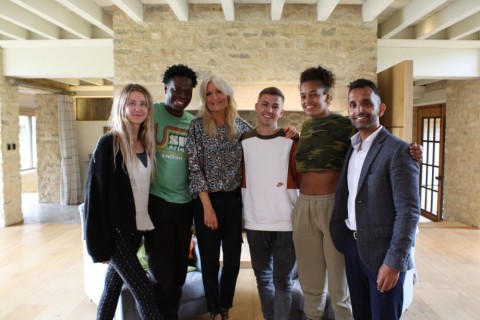The Science of Sleep: How to Sleep Better (by BBC Studios 2019)
2020.04.12
“The Science of Sleep: How to Sleep Better”, which was broadcasted on NHK Educational Television the other day, was very interesting.
At a time when coronavirus pandemic, even though everybody knows sleep is necessary to increase immunity, I guess many people cannot get enough sleep.
In the first place, the reason why people need sleep is because if you don’t get enough sleep, your immune systems get damaged. And it puts a lot of pressure to the body. Any damage during the day is fixed at night. But without that level of sleep, those things carry on being damaged next day and next day over the time. That’s why it has a relationship between not enough sleep and poor health.
70 percent of people in the UK don’t get enough sleep. In the program, they took four volunteers in their 20s and deprived them of sleep for 48 hours to show what happened.

Four volunteers, the presenter, and a doctor
The experiment showed that loss of concentration, memory, and resistance to pain.
Statics suggest that been reduced ability to cope with pain. Dopamine has a suppressive effect against pain. But if you don’t get enough sleep, its mechanism slows down the natural pain killer.
In fact, recent study reveals that adults sleep less than 7 hours are more likely to have painful chronic condition such as arthritis and back pain. Recommend sleep is 8 hours at night.
Insomnia is the most common sleep problem in the UK. A man has been suffering from insomnia for 20 years. Then, a sleep medicine professor of Oxford University made two suggestions to him.
The technique is called sleep restriction. First is “Get in bed later and get up earlier. Compress your sleep and squeeze time.”
And second is “After turning off a light, lay and try stay awake a little longer than usual. When your eyes are getting heavy, resist sleepiness gently like more 30 seconds.”
It seems that you fall asleep when you try to be awake, on the contrary. The man who was undergoing treatment tried to be awake, surprisingly he fell asleep before he was aware.
I also take long to fall asleep, so I tried this method and I was able to fall asleep quicker and sleep better than usual. If you take long to fall asleep, why don’t you try? (H.S)

